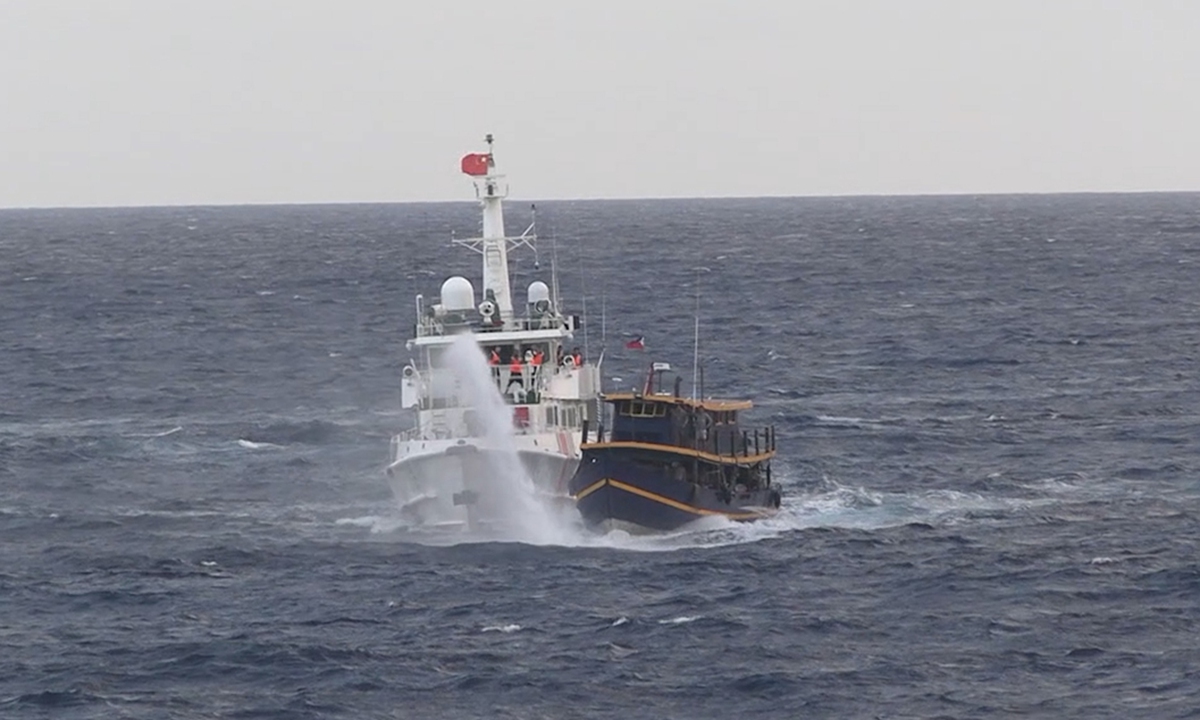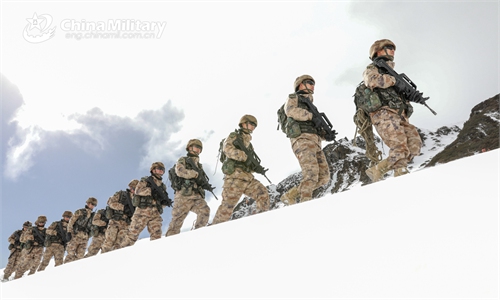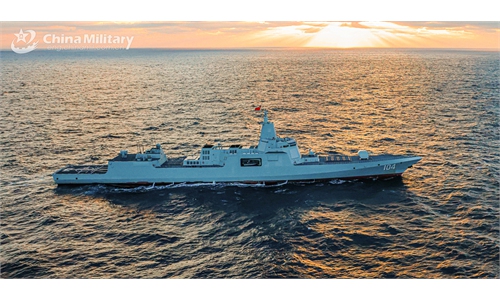Experts urge Philippines to remain restrained after longest pause of provocation in South China Sea

Disregarding warnings from the Chinese side, a Philippine vessel, the Unaiza May 1, makes an unprofessional and dangerous turn, and intentionally rams into a China Coast Guard ship in waters off China's Ren'ai Reef in the South China Sea on December 10, 2023. Photo: Screenshot from a video clip obtained by the Global Times
It has been apparently more than one month since the Philippines last sent ships to trespass into waters off China's Ren'ai Jiao (also known as Ren'ai Reef), marking the longest pause in Manila's provocations since August.
This is a situation that marked a temporary de-escalation in tensions in the South China Sea after China displayed its determination in safeguarding its sovereign security and maritime rights with legitimate measures, experts said on Monday
But experts also warned that the Philippines, along with the US that stands behind it, will not easily give up their goals in the long term, with the Philippines having announced plans to develop islands in the South China Sea to make them more habitable for troops.
The latest round of Philippine provocation off Ren'ai Jiao took place in December 10, 2023, when the China Coast Guard (CCG) took restriction measures against Philippine vessels that attempted to send illegal construction materials to the Philippines' illegally grounded warship on Ren'ai Jiao, the CCG announced at the time.
The Philippines has made a total of seven similar attempts since the first one on August 5, 2023, followed by provocations on August 22, September 8, October 4, October 22, November 10 and December 10, on intervals mostly shorter than a month.
Over one month has passed and with no new information coming from the CCG, another round of the Philippines attempting to send construction materials to its illegally grounded warship at Ren'ai Jiao has apparently not taken place as of press time, marking the longest pause since the start of this round of tensions, observers said.
Xu Liping, director of the Center for Southeast Asian Studies at the Chinese Academy of Social Sciences, told the Global Times on Monday that the tensions in the South China Sea have eased up recently, and one of the main reasons is that the Chinese side has firmly made its position known and displayed its determination in safeguarding its sovereignty over its islands and reefs as well as its maritime interests.
In addition to the legitimate, professional and restrained restriction measures applied by the CCG, the Chinese People's Liberation Army also held routine patrols and exercises from January 3 to 5 in the South China Sea when the Philippines and the US conducted provocative joint military maneuvers in the region from January 3 to 4.
The Southern Theater Command said at the time that any military activities that upset the situation or create tension in the South China Sea were completely under control.
Xu said that China has issued stern warnings to the Philippines and demanded that it is not to go too far.
Another reason behind the de-escalation is that the international community has also urged the Philippines not to play with fire in the South China Sea issue, including other ASEAN member states that also have interests when it comes to peace and stability in the region, Xu said.
The US military also scaled down the joint patrol with the Philippines at the start of the month, according to media reports.
As it was the US that has instigated the Philippines in provoking China, it also does not want the Philippines to go so far that a conflict could break out, a Chinese military expert who requested anonymity told the Global Times on Monday.
If the US joins such a conflict, the risks are too big for the US to bear, and the US is not willing to sacrifice its interests for the interests of the Philippines; but if the US does not join the fight, then it will lose trust and influence over its allies, the expert said.
But neither the US nor the Philippines has given up their goals, with the US still scheming to contain China using the Philippines as a foothold in the region, and the Philippines still eyeing to seize Ren'ai Jiao, experts said.
The Philippines will develop islands in the South China Sea that it considers part of its territory to make them more habitable for troops, Manila's military chief Romeo Brawner said on Monday, Reuters reported.
The issue is unlikely to be resolved anytime soon, and another round of provocation by the Philippines should not be ruled out, analysts said, urging the Philippines to remain restrained, or the tensions could rise again.
Song Zhongping, a Chinese military expert and TV commentator, told the Global Times on Monday that regardless of the current easing situation, China should enhance management and control over Ren'ai Jiao.
If the Philippines insists on building infrastructures on Ren'ai Jiao, tensions will surely escalate further, and China will take more measures in deterring the Philippines' attempts, Song said.




